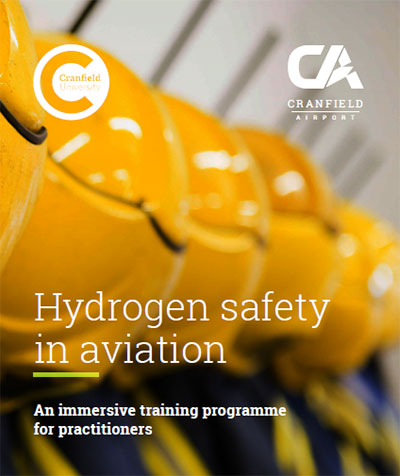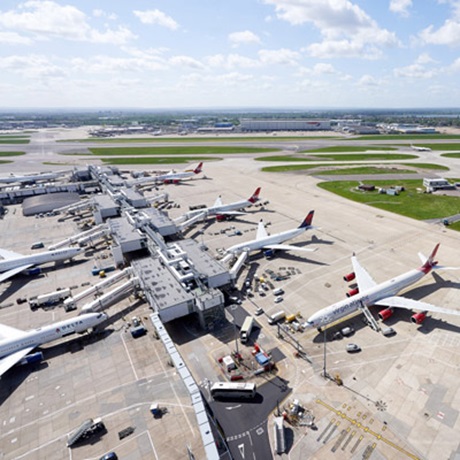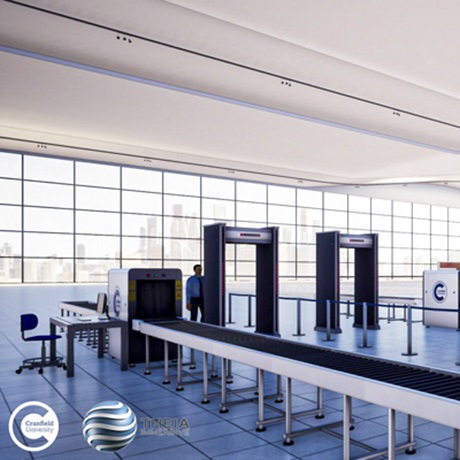Air transport incorporates more than just the flight; for a truly seamless journey it is important to consider the complete door-to-door experience. We are working to determine how the latest digital technologies can be integrated to help transform the passenger experience, aircraft turnaround and cargo/baggage journey of the future to help increase efficiency, improve safety and enhance sustainability from origin to destination.
Emerging concepts are being explored in areas including extended reality (XR) and immersive technologies, including virtual reality (VR) and augmented reality (AR); digital identity management; artificial intelligence (AI), automation and machine learning; digital twins, smart systems and the internet of things; biometrics and blockchain. These benefit from the unique research facilities available in DARTeC, including:
- An at-scale passenger experience laboratory for user trials;
- Operational aircraft stand;
- Fully configurable aircraft cabin interior.
The DARTeC seamless journey research stream is engaged with the sector in a variety of ways, including:
User trials: understanding how people respond mentally, physically, and behaviourally to their environment. These environments can be ‘real’ (i.e. in the lab) or simulated virtually using XR and immersive technologies. In the ‘real’ world, sensors and advanced tracking (cameras) in our laboratory can be used to monitor user behaviour, while wearables (e.g. smart watches and activity trackers) can be used to monitor physiological factors.
For example, our research using XR and immersive technologies is helping airline and airport employees develop awareness and empathy around the requirements of passengers with additional needs.
Innovative design and co-creation: designing, developing and then testing physical spaces, operations and processes using disruptive digital technologies as a basis. For example, we are exploring the use of digital twins to anticipate future design challenges and using XR to help improve wayfinding provision for passengers.
The ongoing Urban Turbine project is investigating new technologies and supporting the aviation industry in transforming and humanising the passenger process, while engaging with cities to meet the challenges of the circular economy. We are working with leading airports on innovative new airport business models and the substantial reduction of emissions that are only possible by synchronising airport and urban processes. Confirmed project partners include Manchester Airport Group, GVK India and Riga International Airport.
Thought leadership and knowledge exchange: identification of key technological and industry trends to aid planning and future development through academic and industry publication, ‘horizon scanning’ activities, as well as hosting international forums and events on digital aviation and the passenger experience.
For example, we are working with Heathrow Airport on the Airport Infrastructure Requirements for Electrical Propulsion Systems (AIREPS) project, a feasibility study in collaboration with the University of Essex and the University of Reading examining airport infrastructure requirements for future aircraft electrification. We also work with the Industry Resilience Group (IRG), an airport/airline industry body formed under the guidance of the CAA, and host ‘Fly Bio-Confident’, a specialist industry forum addressing the challenges of restoring passenger confidence in flying in the aftermath of COVID-19.
Other recent achievements:
- A bespoke Virtual Airport Environment (VAE) was designed and then built in VR for the purpose of user trials. This work was subsequently featured in various international publication and media outlets.
- Integrated Multimodal Operations for Efficient Passenger Flow Management (IMHOTEP): an international, multi-partner research project including AENA and London City Airport seeking to develop a concept of operations and a set of data analysis methods, predictive models and decision support tools that allow information sharing, common situational awareness and real-time collaborative decision-making between airports and ground transport stakeholders was launched in May 2020.
- A ‘technology horizon scan’ report detailing the capabilities and design of the future aircraft cabin was developed, alongside an accompanying 360 VR experience, and showcased at Farnborough International Airshow Connect in July 2020.
- The Seamless Emergent Network for Security (SENSeC), a funded security-based knowledge exchange working group, was launched in November 2020. SENSeC seeks to establish a network of aviation security professionals and academics, developing a shared platform for knowledge exchange to progress research and development of future novel aviation security solutions.














